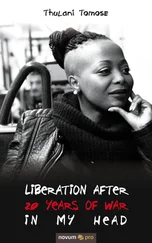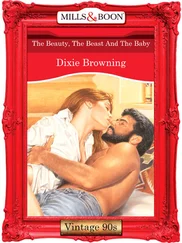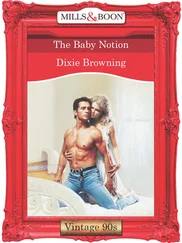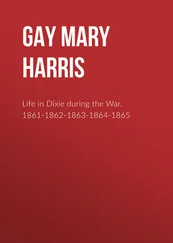Myrta Avary - Dixie After the War
Здесь есть возможность читать онлайн «Myrta Avary - Dixie After the War» — ознакомительный отрывок электронной книги совершенно бесплатно, а после прочтения отрывка купить полную версию. В некоторых случаях можно слушать аудио, скачать через торрент в формате fb2 и присутствует краткое содержание. ISBN: , Жанр: foreign_antique, foreign_prose, Историческая проза, на английском языке. Описание произведения, (предисловие) а так же отзывы посетителей доступны на портале библиотеки ЛибКат.
- Название:Dixie After the War
- Автор:
- Жанр:
- Год:неизвестен
- ISBN:http://www.gutenberg.org/ebooks/41730
- Рейтинг книги:5 / 5. Голосов: 1
-
Избранное:Добавить в избранное
- Отзывы:
-
Ваша оценка:
- 100
- 1
- 2
- 3
- 4
- 5
Dixie After the War: краткое содержание, описание и аннотация
Предлагаем к чтению аннотацию, описание, краткое содержание или предисловие (зависит от того, что написал сам автор книги «Dixie After the War»). Если вы не нашли необходимую информацию о книге — напишите в комментариях, мы постараемся отыскать её.
Dixie After the War — читать онлайн ознакомительный отрывок
Ниже представлен текст книги, разбитый по страницам. Система сохранения места последней прочитанной страницы, позволяет с удобством читать онлайн бесплатно книгу «Dixie After the War», без необходимости каждый раз заново искать на чём Вы остановились. Поставьте закладку, и сможете в любой момент перейти на страницу, на которой закончили чтение.
Интервал:
Закладка:
Seward’s life was attempted the same evening by Booth’s confederate, Lewis Payne, who penetrated to the Secretary’s sick-room and wounded him and his son; Payne escaped. General Grant’s death was a part of the plot; he and Mrs. Grant had declined invitation to share the President’s box, and started west; Mr. Stanton’s murder was also intended; but he escaped, scathless of body but bitterer of soul than ever, bitterer than Mr. Seward, who was wounded.
In a letter which Matoaca wrote years afterward, she said: “I well remember the horror that thrilled our little circle when the news came. ‘Now, may God have mercy on us!’ Uncle exclaimed. He sat silent for a while and then asked: ‘Can it be possible that any of our own people could do this thing? Some misguided fanatic?’ And then, after a silence: ‘Can some enemy of the South have done it? Some enemy of the South who had a grudge against Lincoln, too?’ ‘What sort of secret service could they have had in Washington that this thing could happen? How was it that the crippled assassin was able to make his escape?’ he said when full accounts appeared. The explanations given never explained to him.
“I heard some speak who thought it no more than just retribution upon Mr. Lincoln for the havoc he had wrought in our country. But even the few who spoke thus were horrified when details came. We could not be expected to grieve, from any sense of personal affection, for Mr. Lincoln, whom we had seen only in the position of an implacable foe at the head of a power invading and devastating our land; but our reprobation of the crime of his taking off was none the less. Besides, we did not know what would be done to us. Already there had been talk of trying our officers for treason, of executing them, of exiling them, and in this talk Andrew Johnson had been loudest.
“I remember how one poor woman took the news. She was half-crazed by her losses and troubles; one son had been killed in battle, another had died in prison, of another she could not hear if he were living or dead; her house had been burned; her young daughter, turned out with her in the night, had died of fright and exposure. She ran in, crying: ‘Lincoln has been killed! thank God!’ Next day she came, still and pale: ‘I have prayed it all out of my heart,’ she said, ‘that is, I’m not glad. But, somehow, I can’t be sorry. I believe it was the vengeance of the Lord.’”
Jefferson Davis heard of Lincoln’s death in Charlotte. A tablet in that beautiful and historic city marks the spot where he stood. He had just arrived from Greensboro, was dismounting, citizens were welcoming him when the dispatch signed by Secretary of War Breckinridge was handed him by Major John Courtney. Mrs. Courtney, the Major’s widow, told me that her husband heard the President say: “Oh, the pity of it!” He passed it to a gentleman with the remark, “Here are sad tidings.” The Northern press reported that Jefferson Davis cheered when he heard of Lincoln’s death.
Mrs. Davis, at the Armistead Burt House, Abbeville, received a message from her husband announcing his arrival in Charlotte and telling of the assassination. Mrs. Davis “burst into tears, which flowed from sorrow and a thorough realization of the inevitable results to the Confederates,” – her own words.
General Johnston and General Sherman were in Mr. Bennett’s house near Raleigh. Just before starting to this meeting, General Sherman received a dispatch announcing Mr. Lincoln’s assassination. He placed it in his pocket, and, as soon as they were alone, handed it to General Johnston, watching him narrowly. “He did not attempt to conceal his distress,” General Sherman relates. “The perspiration came out in large drops on his forehead.” His horror and detestation of the deed broke forth; he earnestly hoped General Sherman would not charge this crime to the Confederacy. “I explained,” states General Sherman, “that I had not yet revealed the news to my own personal staff or to the army, and that I dreaded the effect when it was made known.” He feared that “a worse fate than that of Columbia would befall” Raleigh, particularly if some “foolish man or woman should say or do something that would madden his men.” He took pains when making the calamity known to assure his army that he did not consider the South responsible.
Mr. Davis, under arrest, and on the way to Macon, heard that Andrew Johnson had offered a reward of $100,000 for his arrest, charging him, Clement C. Clay and other prominent Southerners with “inciting, concerting, procuring” the “atrocious murder” of President Lincoln. Between threatening soldiery, displaying the proclamation and shouting over his capture, Mr. Davis and his family rode and walked.
At Macon, General Wilson received him with courtesy; when the proclamation was mentioned, Mr. Davis said one person at least in the United States knew the charge to be false, and that was the man who signed it, for Andrew Johnson knew that he preferred Lincoln to himself.
In Augusta, Colonel Randall (author of “Maryland, My Maryland”), meeting Clement C. Clay on the street, informed him of the proclamation. The old ex-Senator at once surrendered, asking trial. 5 5 The account which I had from Colonel Randall at the home of Mr. John M. Graham, Atlanta, Ga., in the spring of 1905, does not quite coincide with that given by Mrs. Clay in “A Belle of the Fifties.” In years elapsing since the war, some confusion of facts in memory is to be expected.
In Southern cities citizens held meetings condemning the murder and expressing sorrow and regret at the President’s death. Ex-Governor Aiken, known as the largest slave-owner in South Carolina, led the movement in Charleston, heading a petition to General Gillmore for use of the Hibernian Hall that the people might have a gathering-place in which to declare their sentiments.
Even the Confederates in prison were heard from. The officers confined at Fort Warren signed with General Ewell a letter to General Grant, expressing to “a soldier who will understand” their detestation of Booth’s horrible crime. The commandant of the Fort, Major William Appleton, added a note testifying to their deep sincerity.
CHAPTER VIII
The Wrath of the North
The mad act of crazy Wilkes Booth set the whole country crazy. The South was aghast, natural recoil intensified by apprehension. The North, convulsed with anguish, was newly inflamed, and even when the cooler moment came and we were acquitted of any responsibility for Booth’s crazy act, the angry humour of a still sore heart was against us. We, of both sections, who suffered so lately as one people in the death of President McKinley, can comprehend the woe and unreason of the moment.
Indignation and memorial meetings simply flayed the South alive. At one in the New York Custom House, when the grieving, exasperated people did not know whether to weep or to curse the more, or to end it by simply hanging us all, Mr. Chittenden rose and said: “Peace, be still!” And declared the death of Lincoln providential, God removing the man of mercy that due punishment might be meted out to rebels. Before the pacific orator finished, people were yelling: “Hang Lee!” and “The rebels deserve damnation!” Pulpits fulminated. Easter sermons demanded the halter, exile, confiscation of property, for “rebels and traitors”; yet some voices rose benignly, as Edward Everett Hale’s, Dr. Huntington’s, and Rufus Ellis’, in words fitting the day. Beecher urged moderation.
The new President, Andrew Johnson, was breathing out threatenings and slaughter before Lincoln’s death. Thousands had heard him shout from the southern portico of the Patent Office, “Jeff Davis ought to be hung twenty times as high as Haman!”
Читать дальшеИнтервал:
Закладка:
Похожие книги на «Dixie After the War»
Представляем Вашему вниманию похожие книги на «Dixie After the War» списком для выбора. Мы отобрали схожую по названию и смыслу литературу в надежде предоставить читателям больше вариантов отыскать новые, интересные, ещё непрочитанные произведения.
Обсуждение, отзывы о книге «Dixie After the War» и просто собственные мнения читателей. Оставьте ваши комментарии, напишите, что Вы думаете о произведении, его смысле или главных героях. Укажите что конкретно понравилось, а что нет, и почему Вы так считаете.












